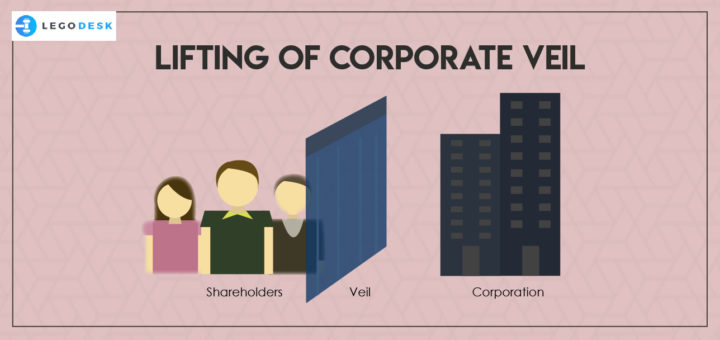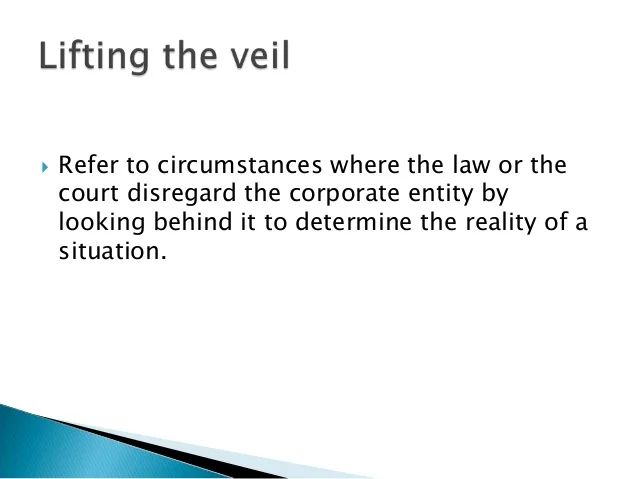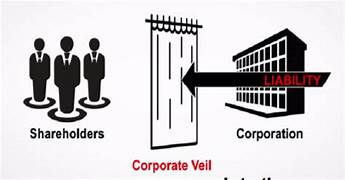Certificate of Probate/Letter of Administration & Territorial
jurisdiction
The vast number of civil cases
related to properties based on testamentary matters. The matter of inheritance
shall be governed by Indian Succession Act, in such an event. However, if the
death occurs intestate i.e without leaving any Will, then the ordinary mode of
inheritance as per The Hindu Succession Act 1956 (as amended and up to date) or
as per the law of inheritance of other religion shall follow. The very purpose
of writing this article, is to address to a situation, where petition for
probate and /or Letter of Administration
of the estate of deceased, who left behind a Will is filed and order of
probate/Letter of Administration in respect of a Will is also granted. However,
before issuing certificate another aspect emerges i.e territorial jurisdiction
of District Judge in respect of such properties as mentioned in the Will, which
is situated outside the state or outside the territorial limit of such District
Court. Clearly, probate/Letter of administration is granted to the Will and
thereafter the aspect of issuing certificate shall follow. It is of pertinence
that the order of grant of probate/letter of administration shall be judicial
work, whereas issuing of Certificate shall be ministerial work. Still, the
ministerial work shall be of importance in as much as valuation of properties
mentioned in the Will has to be ascertained from proper channel and court
fee/non judicial stamp paper will have to be procured for issuing certificate
of probate/letter of administration and it will be at that stage that even
territorial jurisdiction of all other properties mentioned in the Will shall be
of further relevance.
One may be amused as regards
after grant of probate/letter of administration, how is that the aspect of
territorial jurisdiction could emerge. It is because, at the time of
instituting petition for seeking Probate or letter of Administration, it is
sufficient that the deceased had place of abode within the territorial limit of
such District Court and/ or any one property i.e moveable or immovable should
fall within the territorial limit of such District Court. In such a situation
there is no embargo as regards entertaining the petition and grant of
probate/letter of administration of the impugned will. However, a Will may also
include other properties moveable or immoveable and that may be situated
outside the state. In such an event certificate of probate/letter of
administration cannot be issued by a District Court in respect of such
properties situated outside the territorial limit of such District Courts. Whether
such fetter shall be attached to High Court also as regards the properties
contained in the Will which is situated outside the state shall be deliberated
later. Suffice to say, that, The Indian Succession Act 1925 itself provides the
answer in this regard and that shall be delineated little later.
At the very anvil, the petitioner
shall have the option as per the provisions of Indian Succession Act 1925 to
approach District Judge or concerned High Court, since as per the Act both High
Court and District Court shall have concurrent jurisdiction. Though, as may
turn out, the jurisdiction of District Court shall be circumscribed after
granting of probate/letter of Administration and cannot traverse beyond its
territorial limit, unless the value of such properties outside the territorial
limit of such court does not exceed Rs 10,000/-.
The broad questions, thus, emerges are as under:
(A)
Whether after granting of probate or
letter of administration in respect of the Will, certificate can be issued in
respect of such moveable or immoveable properties situated outside the state by
a District Court?
(B)
If the answer to the question (1) is “No”,
whether such certificate can be issued by High Court?
(C)
If the answer to question (2) is yes,
what are the rational of it and/or judicial precedents in this regard?
It is therefore necessary to
analyse the aforesaid issue in a bigger canvas. At the cost of repetition it is
pointed out that the issue of territorial jurisdiction in respect of such
additional properties as per the Will, falling outside the State, shall only
emerge after the order of grant of probate/letter of administration and while
issuing certificate.
PROVISIONS
OF INDIAN SUCCESSION ACT 1925
The Indian Succession Act, 1925 is divided
into 11 parts, with some of the parts sub−divided into several chapters. Part
VI of the Act comprising of 23 Chapters, contains exhaustive provisions
relating to “Testamentary Succession”.
Sections 57 to 191 of the Act are included in
this Part. Part IX of the Act contains
Sections 217 to 369, divided into 13 chapters. Chapter IV of Part IX contains
provisions governing “the practice in granting and revoking probates and
letters of administration.” Sections 264 to 302 are found in this Chapter.
The procedure for making an application for
probate or for letters of administration with the Will annexed, is provided in
Section 276.
264. Jurisdiction of District Judge in granting
and revoking probates, etc.—
(1) The District Judge shall have jurisdiction
in granting and revoking probates and letters of administration in all cases
within his district.
(2)
Except in cases to which section 57 applies, no Court in any local area beyond
the limits of the towns of Calcutta, Madras and Bombay, shall, where the
deceased is a Hindu, Muhammadan, Buddhist, Sikh or Jaina or an exempted person,
receive applications for probate or letters of administration until the State
Government has, by a notification in the Official Gazette, authorised it so to
do.”
The bare perusal of sub−section (2) of
Section 264 shall reveal that it imposes a bar upon the Courts in any local
area beyond the limits of the towns of Calcutta, Madras and Bombay, from
receiving applications for probate or letters of administration, until the
State Government, by a notification in the Official Gazette, authorized them so
to do, wherever the deceased is a Hindu, Muhammadan, Buddhist, Sikh or Jaina or
an exempted person. But the bar under Sub−section (2) has no application to
cases, to which Section 57 applies.
Section 57 of the act reads as under:
57.
Application of certain provisions of
Part to a class of Wills made by Hindus, etc.—
The
provisions of this Part which are set out in Schedule III shall, subject to the
restrictions and modifications specified therein, apply—
(a)
to all Wills and codicils made by any Hindu, Buddhist, Sikh or Jaina on or
after the first day of September, 1870, within the territories which at the
said date were subject to the Lieutenant−Governor of Bengal or within the local
limits of the ordinary original civil jurisdiction of the High Courts of
Judicature at Madras and Bombay; and
(b)
to all such Wills and codicils made outside those territories and limits so far
as relates to immoveable property situate within those territories or limits;
and
(c)
to all Wills and codicils made by any Hindu, Buddhist, Sikh or Jaina on or
after the first day of January, 1927, to which those provisions are not applied
by clauses (a) and (b):] Provided that marriage shall not revoke any such Will
or codicil.”
The relevant provision regarding territorial
jurisdiction is section 270 of the Indian Succession Act which reads as under :
270. When
probate or administration may be granted by District Judge.-Probate
of the Will or letters of administration to the estate of a deceased person may
be granted by a District Judge under the seal of his Court, if it appears by a
petition, verified as hereinafter provided, of the person applying for the same
that the testator or interested as the case may be, at the time of his decease
had a fixed place of abode, or any property, moveable or immovable, within the
jurisdiction of the Judge.
271. Disposal
of application made to judge of district in which deceased had no fixed abode.-When
the application is made to the Judge of a district in which the deceased had no
fixed abode at the time of his death, it shall be in the discretion of the
Judge to refuse the application, if in his judgment it could be disposed of
more justly or conveniently in another district, or, where the application is
for letters of administration, to gram them absolutely, or limited to the
property within his own jurisdiction.
It is therefore clear that in order that a
court may have territorial jurisdiction, the deceased should have either a
fixed place of abode or moveable or immovable property within its jurisdiction.
According to section 300 of the Indian
Succession Act, the High Court shall have concurrent Jurisdiction with the
District Judge in the exercise of all powers which are conferred by the Act on
the District Judge. The aforesaid jurisdiction of High Court is subject to
sub-section (2) which reads as under :
300.Concurrent jurisdiction of High Court-
(1) The High Court shall have concurrent
jurisdiction with the District Judge in the exercise of all the powers hereby
conferred upon the District Judge.
(2)
Except in cases to which section 57 applies, no High Court, in exercise
of the concurrent jurisdiction hereby conferred over any local area beyond the
limits of the towns of Calcutta. Madras and Bombay, shall, where the deceased
is a Hindu, Muhammadan, Buddhist, Sikh or Jains or an exempted person, receive
applications for probate or letters of administration until the State
Government has by a notification in the Official Gazette, authorised it so to
do."
It may be noted that this sub-section (2)
does not apply where section 57 of the Act applies. This is clear from the very
starting words. According to clause (c) of Section 57, the said provision is
applicable to all Hindus, Buddhists, Sikhs and Jains after first January 1927.
That means that the restriction contained in sub-section (2) of Section 300 of
the Act applies only to Muhammadans and exempted persons.
273.
Conclusiveness of probate or letters of
administration. -Probate or letters of administration shall have effect
over all the property and estate' moveable or immovable, of the deceased,
throughout the State in which the same is or are granted and shall be
conclusive as to the representative title against all debtors of the deceased
and all persons holding property which belongs to him, and shall afford
indemnity to all debtors, paying their debts and all persons delivering up such
property to the person to whom such probate or administration have been
granted: Provided that probates and letters of administration granted-
(A) by
a High Court, or (B) by a District Judge, where the deceased at the time of his
death had a fixed place of abode situate within the jurisdiction of such Judge,
and such Judge certifies that the value of the property and estate affected
beyond the limits of the State does not exceed ten thousand rupees, shall
unless otherwise directed by the grant, have like effect throughout the other
States."
Section 273 of the Act contains the
provisions that notwithstanding concurrent jurisdiction of District Judge and
High Court, provisions of Section 273 do not keep them at par. These provisions
make the probate or letters of administration issued by the High Court
conclusive even in respect of property situated throughout India but they limit
in operation such conclusiveness in respect of probates or letters of
administration issued by District Judge.
LAW
In Kanta
vs State And Anr AIR 1985 Delhi 453
the Delhi High court has held in para 20 that:
“20. Section 273 of the Act does not deal
with the jurisdiction of the High Court or the District Judge to entertain and
decide a petition for grant of letters of administration or probate. That
provision only deals with the effect and binding force of grant of letters of
administration or probate by the High Court or the District Judge. It has
nothing to do with the territorial Jurisdiction. The territorial jurisdiction
is dealt with by sections 270, 271, and 300 of the Act which have been referred
to already. Had the intention of the legislature been that section 273 of the
Act, would deal with the territorial jurisdiction also, there was hardly any
necessity of enacting sections 270, 271 and 300 of the Act. Therefore, on
harmonious construction of sections 270, 271, 273 and 300 of the Act it is
clear that section 273 has nothing to do with the territorial jurisdiction and
it only deals with the binding force or effect of the letters of administration
and probate issued by a High Court or District Judge”.
Before, narrating
on the aspect further, it may be worthwhile to refer to a recent Supreme Court
Judgment reported as Narender Nath
Agarwal Vs Yogender Nath Agarwal & Ors 2021 (2) SCALE 627. The Supreme
Court has clarified all such aspects as regards the territorial jurisdiction of
District Court and High Court in no uncertain terms. The following
judgments/precedents are also analysed by the Supreme Court in this context:
(1) Ishwardeo Narain Singh vs Kamla Devi & Ors
AIR 1954 SC 280
(2) Chiranji
al Shrilal Goenka Vs jasjit Singh & Ors (1993) 2 SCC 507
(3) T. Venkata Narayana & Ors Vs Venkata
Subbamma (Smt) (Dead) & Ors (1996) 4 SCC 457
(4) Balbir
Singh Wasu Vs Lakhbir Singh & Ors (1985) 1 SCC 144
(5) Nirmala
Devi Vs Arun Kumar Gupta (2005) 12 SCC 505
(6) Smt Rukmani Devi & Ors Vs Narender Lal
Gupta (1985) 1 SCC 144
A cumulative reading of Sections 57, 213 and
264 would show: (i) that a person claiming to be an executor or legatee under a
Will cannot rely upon the Will, in any proceeding before a Court of justice,
unless he has obtained probate (if an executor has been appointed) or letters
of administration with the Will annexed, if such a Will has been executed by
certain classes of persons; and (ii) that the jurisdiction to grant probate or
letters of administration vests only in courts located within the towns of
Calcutta, Madras or Bombay and the Courts in any local area notified by the
State Government in the Official Gazette.
Therefore, what follows is that:
(i) unless, the testator belongs
to any of the classes of persons
specified in the Act; and
(ii) unless, the Will is made or
some of the properties covered by the Will are located, within the local limits
of a notified area, there is no necessity for an executor or a legatee under a
Will to seek probate or letters of administration.
By virtue of Section 213(2) (i)
read with Clauses (a) and (b) of Section 57, the mandatory requirement to seek
probate or letters of administration for establishing a right as executor or
legatee under a Will, is applicable only to Wills made by a Hindu, Buddhist,
Sikh or Jaina within the local limits of the ordinary original civil
jurisdiction of certain High Courts and to Wills made outside those
territories, to the extent they cover immovable property situate within those
territories. Therefore, there is no prohibition for a person whose case falls
outside the purview of these provisions, from producing, relying upon and
claiming a right under a Will, in any proceeding instituted by others including
the other legal heirs for partition or other reliefs.
In view of Proviso (b) to Section
273, letters of administration granted by a District Court cannot have validity
in respect of a property located outside the State, if its value exceeds Rs.
10,000/−. No such fetter is however attached to High Court. However, this
problem can be resolved by ordering the transfer of the testamentary case to
the High Court and ordering the transfer of the partition suit from the
District Court back to the High Court.
To set at rest any ambiguity it
may be worthwhile to reproduce para no. 48 of Ravinder Nath Agarwal (Supra):
46. In so far as
second transfer petition is concerned, the relief sought therein is to transfer
the testamentary case pending in the High Court of Uttrakhand to the District
Court, Saket, Delhi. Since, the Will set up by the petitioner covers properties
located both in Nainital and Delhi, both these courts have concurrent
jurisdiction. But in view of proviso (b) to section 273, letters of administration
granted by a District Court cannot have validity in respect of property located
outside the state, if its value exceeds Rs 10,000/-. However, this problem can
be resolved by ordering the transfer of testamentary case to the High Court of Delhi
and ordering the transfer of the partition suit from the District Court Saket back
to the High Court of Delhi.”
CONCLUSION
Thus, a petition for
probate/Letter of Administration in respect of a Will left behind by a testator
can be preferred in the District Court within the jurisdiction of that the
deceased last resided and/or at least one immoveable/moveable property is
situated. The petition can be filed in High Court as well, in the very first
instance in view of concurrent jurisdiction. The order of probate/Letter of
Administration is granted in respect of the Will, however, subsequent to that
certificate is required to be issued and the jurisdiction of District Court is
truncated in respect of such properties of the Will situated outside the
territorial limits of such District Court or the properties situated outside
the state. However, as illustrated no such embargo or inhibition applies to a
High Court and a High Court can issue certificate in respect of any other properties
of the Will in respect whereof petition for probate/Letter of Administration is
preferred, even if situated outside the state
as well. In Ravinder Nath Agarwal (Supra) the same is emphatically held by hon’ble
Supreme Court while interpreting sections 264, 273 and section 300 of Indian
Succession Act 1925 itself and by analyzing the judgments/precedents in this
regard.
------------
Anil K Khaware
Advocate
Founder & Senior Associate
Societylawandjustice.com












